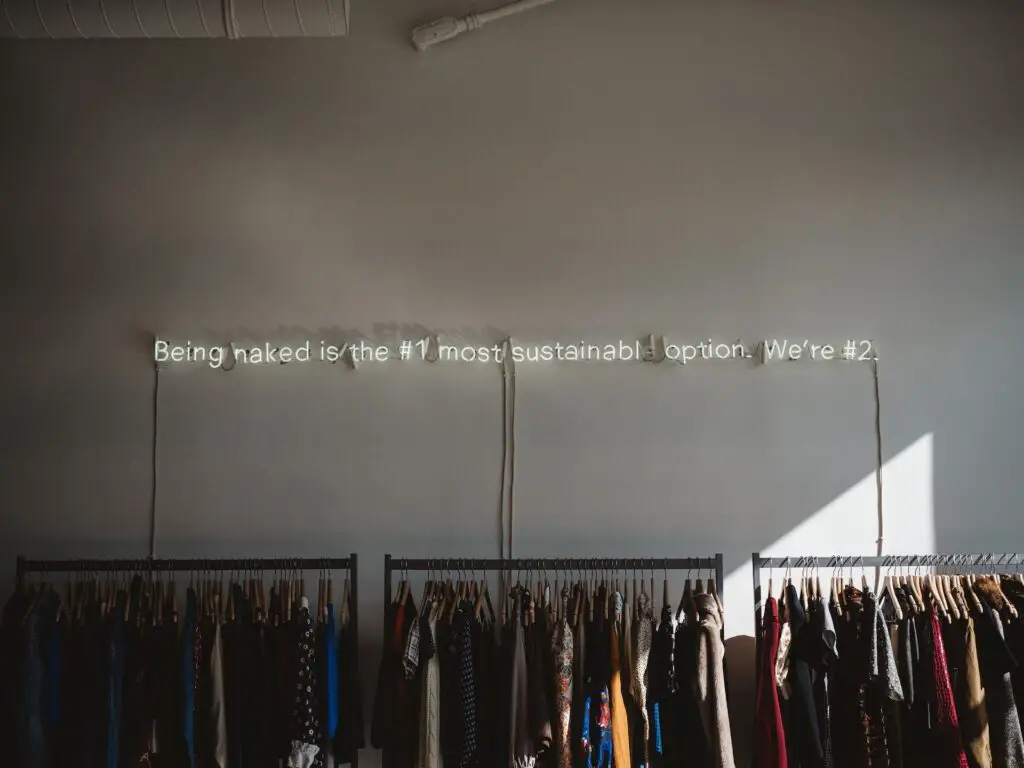In today’s fast-paced digital landscape, capturing the attention of Generation Z (Gen Z) consumers is crucial for the success of any fashion brand.
Born between the mid-1990s and early 2000s, Gen Z is a tech-savvy and socially conscious generation that values authenticity, inclusivity, and personalization. To effectively market your fashion brand to this demographic, it is essential to understand their unique preferences and behaviors.

In this article, we will discuss seven tips to help you engage with Gen Z and create a lasting impact in the fashion industry.
Consider TikTok Creator Marketing
Gen Z is the first generation to have grown up entirely in the digital age, making social media platforms their primary sources of information and inspiration. To promote your brand to Gen Z, it is crucial to have a strong social media presence, especially on TikTok.
At present, TikTok is one of the most popular social media platforms in the world, with over one billion monthly active users. Thus, it’s only logical that you consider TikTok creator marketing for your brand campaigns and promotions.
TikTok creators are well-versed in appealing to their target audience by tailoring content that they specifically would enjoy. From the creator community, you need to find creators that have an audience that matches your target demographic and work with them.
According to OpenInfluence, TikTok users thrive on content that is user-generated, authentic, and creative. As you’ll learn later on in this article, these qualities are exactly what Gen Z prefers. Thus, if you can get TikTok influencers or creators to promote your brand by wearing your products or shopping at your stores, you can easily target Gen Z consumers.
Focus on Authenticity and Transparency
Authenticity and transparency are of utmost importance to Gen Z when it comes to supporting a brand. This group of people seeks genuine experiences. If your marketing tactics are inauthentic or lead to false premises, they can easily spot them.
To connect with this demographic, be transparent about your brand’s values, mission, and manufacturing processes. Use storytelling to share your brand’s journey, highlight sustainable practices, and showcase diversity and inclusivity in your campaigns.
Authenticity builds trust and loyalty among Gen Z consumers, who are more likely to support brands that align with their own values.
Leverage User-Generated Content
In a way, Gen Z consumers are content creators themselves. They actively participate in sharing their opinions and experiences on social media platforms. This allows you to promote your brand through user-generated content. Doing so will help foster a sense of community surrounding your brand.
Encourage your audience to share their content featuring your clothes or fashion accessories and repost their images with permission and proper credit. This can be easily done through platforms like Instagram. Doing so not only creates a bond with your customers but also acts as social proof for potential buyers.
Prioritize Sustainability and Ethical Practices
According to Forbes, Gen Z is currently emerging as the sustainability generation. That means Generation Z shoppers are more pulled toward sustainable brands. If needed, Gen Z won’t hesitate to spend 10 percent more on brands as long as they are sustainable.
Another report by Sustainability Magazine highlights that Gen Z is also highly concerned regarding ethical practices across the fashion industry. In fact, 62 percent of Gen Z are willing to pay more if the goods are ethically produced.
Thus, it’s evident that Gen Z is passionate about environmental and social issues. That means if you want to promote your products to them, ensure that your fashion products are eco-friendly and manufactured through fair and ethical labor practices. Prioritize sustainability and ethical considerations in your supply chain. You must clearly communicate your efforts to Gen Z consumers through transparent messaging, highlighting your initiatives to reduce waste, support fair trade, and promote recycling.
Enable Personalization and Customization
Gen Z values individuality and self-expression. Offering personalized experiences and customizable products can significantly enhance your brand’s appeal to this demographic. Implement features that allow customers to tailor products, like t-shirts, pants, bags, etc., to their preferences, such as color, size, or style variations.
Moreover, utilize data-driven insights to deliver personalized recommendations and offers to your customers. This can be achieved through techniques like targeted email marketing, personalized advertisements, and curated shopping experiences.
Engage in Cause Marketing
Gen Z is a socially conscious generation that supports brands that actively participate in social causes. As explained by Fuse Marketing, Gen Z consumers are 85 percent more likely to trust a brand after learning that it supports a social cause. They are also 84 percent more likely to buy products from that brand.
That’s why you should engage in cause marketing by aligning your fashion brand with a purpose or partnering with relevant non-profit organizations. Support initiatives that resonate with your brand and your target audience’s values. At the same time, you must also be transparent about the impact your brand is making through these partnerships.
Prioritize engaging in the cause first before prioritizing cause marketing. Remember, Gen Z can easily spot a facade. The moment they find out that you’re only supporting a cause to cater to their interest, Gen Z will stop buying from your brand and advise others to boycott your brand as well.
Embrace FOMO Marketing
Fear of missing out (FOMO) is a powerful psychological motivator, especially for Gen Z. It is a tactic that streetwear brands like Supreme have used to gain immense popularity.
Utilize limited edition drops, flash sales, and exclusive offers to create a sense of urgency and drive engagement. Implement scarcity and exclusivity tactics surrounding your brand to tap into Gen Z’s desire to be a part of unique and exclusive experiences.
Utilize social media platforms to create hype and generate anticipation around upcoming launches. Collaborate with influencers to amplify the reach of your FOMO marketing campaigns and encourage Gen Z consumers to act quickly.
Conclusion
Currently, Generation Z is one of the largest consumer groups in the US. That means your fashion brand must cater to this group at some point if it already isn’t. Thus comes the need for you to market your products by specifically keeping this group of people in mind.
Doing so will become very easy and efficient as long as you can stick to the suggestions discussed above. Deviating from these, however, can have the opposite impact, and your brand might cease to exist as Gen Z decides to snub it entirely.
Therefore, do your best to implement the marketing tactics discussed above, and you don’t have to worry about Generation Z ignoring or not buying fashion items from your brand.









0 Comments